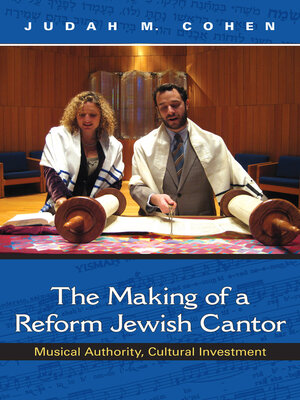The Making of a Reform Jewish Cantor
ebook ∣ Musical Authority, Cultural Investment
By Judah M. Cohen

Sign up to save your library
With an OverDrive account, you can save your favorite libraries for at-a-glance information about availability. Find out more about OverDrive accounts.
Find this title in Libby, the library reading app by OverDrive.



Search for a digital library with this title
Title found at these libraries:
| Library Name | Distance |
|---|---|
| Loading... |
"Of interest not only to cantors and their teachers but also to rabbis, congregations and everyone concerned about the future of the Jewish community." —Florida Jewish Journal
The Making of a Reform Jewish Cantor provides an unprecedented look into the meaning of attaining musical authority among American Reform Jews at the turn of the twenty-first century. How do aspiring cantors adapt traditional musical forms to the practices of contemporary American congregations? What is the cantor's role in American Jewish religious life today?
Judah M. Cohen follows cantorial students at the School of Sacred Music, Hebrew Union College, over the course of their training, as they prepare to become modern Jewish musical leaders. Opening a window on the practical, social, and cultural aspects of aspiring to musical authority, this book provides unusual insights into issues of musical tradition, identity, gender, community, and high and low musical culture.
The Making of a Reform Jewish Cantor provides an unprecedented look into the meaning of attaining musical authority among American Reform Jews at the turn of the twenty-first century. How do aspiring cantors adapt traditional musical forms to the practices of contemporary American congregations? What is the cantor's role in American Jewish religious life today?
Judah M. Cohen follows cantorial students at the School of Sacred Music, Hebrew Union College, over the course of their training, as they prepare to become modern Jewish musical leaders. Opening a window on the practical, social, and cultural aspects of aspiring to musical authority, this book provides unusual insights into issues of musical tradition, identity, gender, community, and high and low musical culture.







